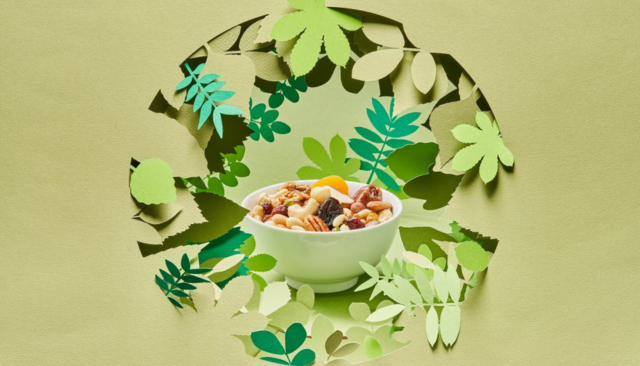Category: Back to the People
Project title: Sustainable Management of Aflatoxin-Contaminated Dried Figs
Project type: Business Implementation or Operational Initiative
Relevant SDG(s):
- Goal 12: Responsible Consumption and Production
- Goal 13: Climate Action
Primary topic(s):
- Advanced Processing and By-product Utilization
- Circular Economy
- Community Development and Engagement
- Supply Chain Transparency and Traceability
- Energy Efficiency and Renewable Energy Integration
- Zero Waste
Relevant product(s): dried figs
Project start date: October 2024. End date: October 2025. Duration: 12 months
Location: İzmir, Aydın Provinces of Türkiye
Is this a multi-collaborative project? Yes, this is a multi-collaborative project. Project partners are the Aegean Exporters Associations, Dried Fig Exporters, and Biosun Ödemiş Integrated Waste Management Facility.
ABSTRACT:
Fig fruit is a sacred and symbolic fruit in the Holy book, and Ficus carica L. (fig) is one of the species widely found in the natural flora of the Mediterranean. It is also one of the oldest cultivated plants in the world. Turkey is the major producer and exporter of dried figs, exporting approximately 70,000 metric tons to more than 100 countries. Turkish dried figs are well-known for their large size, soft texture, brownish color, and the delicious Sarılop-Calimyrna variety, which is rich in nutritional aspects and notable for its phenolic content, enhancing its antioxidant capacity.
Fig trees thrive in warm, humid climates and are low-input crops, requiring minimal pesticides and fertilizers. However, changes in temperature and water availability due to climate change, such as increased temperatures, heavy rainfalls, and droughts, are influencing mold growth and mycotoxin production. This is becoming an increasing concern for agricultural production and trade worldwide.
Aflatoxins are mycotoxins produced by certain species of Aspergillus fungi, which develop in relatively hot and humid conditions. Agricultural products, including figs, are particularly susceptible to aflatoxin (AF)-producing molds during harvesting, drying, processing, and storage. Figs, like other agricultural products, are most often affected by AF-producing molds in the orchard. These molds typically produce kojic acid along with aflatoxins. Kojic acid is a fluorescent compound that exhibits bright greenish-yellow fluorescence (BGYF) under ultraviolet (UV) light.
Physical sorting and separation procedures, where BGYF+ figs are removed from the batch, have proven successful in reducing aflatoxin concentrations to acceptable levels. By using this fluorescence property, fig exporters manually select and remove the BGYF+ figs, effectively lowering the aflatoxin levels in the processed figs. The “Sustainable Management of Aflatoxin-Contaminated Dried Figs” project, initiated by the Aegean Exporters’ Association (AEA), addresses these challenges through an innovative, self-regulatory approach. The project’s objectives are:
- Ensuring food safety by preventing the circulation of Aflatoxin-contaminated dried figs in domestic and international markets.
- Promoting sustainable agricultural and waste management practices by converting contaminated figs into renewable energy via biogas production.
- Supporting exporters with a structured mechanism to manage contamination risks while complying with stringent food safety regulations.
- Strengthening industry leadership by proactively addressing contamination risks without relying solely on governmental enforcement.
Scope and Scale
This large-scale initiative involves all dried fig exporters in Turkey. The project requires exporters to collect and deliver 1.5% of their total exports as aflatoxin-contaminated figs and an additional 1% as mold-contaminated figs, totaling 2.5% of their exports for sustainable disposal. This ensures contaminated products are systematically removed from the market while being repurposed for energy generation. The initiative operates in the 2025 season, with participation of approximately 350 dried fig exporting companies (approximately 75 of them have production facilities) in Turkey. A dedicated team of project specialists and agricultural engineers from AEA conducts regular visits to exporters, advising on contamination monitoring, compliance, and sustainable management practices. Contaminated figs are then processed at biogas facilities, turning food safety issues into opportunities for clean energy production.
Key Components and Innovation
- Self-Regulatory Mechanism: This project empowers the private sector to take responsibility for food safety, with exporters actively participating in monitoring contamination and addressing risks, fostering industry-wide accountability.
- Circular Economy Approach: The project integrates contaminated figs into the energy cycle, converting waste into biogas and demonstrating an innovative, sustainable solution for food waste management.
- Climate-Responsive Strategy: The project sets a proactive precedent for agricultural adaptation strategies aligned with sustainability goals in the face of climate-induced contamination risks.
- Stakeholder Collaboration: The project encourages collaboration among exporters, government agencies, and environmental organizations, facilitating knowledge-sharing and best practices.
Results and Impact
The project has demonstrated measurable success by reducing food safety risks and contributing to Turkey’s renewable energy goals. Key impacts include:
- Improved Food Safety: By removing Aflatoxin-contaminated products, the project ensures compliance with international food safety standards, protecting consumer health and maintaining the credibility of Turkish dried fig exports.
- Sustainability Advancements: The conversion of contaminated figs into biogas directly supports Sustainable Development Goals (SDGs), particularly SDG 7 (Affordable and Clean Energy) and SDG 12 (Responsible Consumption and Production).
- Economic and Environmental Benefits: The repurposing of waste into biogas reduces landfill waste, lowers greenhouse gas emissions, and contributes to Turkey’s energy production capacity.
- Industry Leadership and Replicability: This initiative serves as a best-practice model for other agricultural sectors, with the potential for global replication.
The “Sustainable Management of Aflatoxin-Contaminated Dried Figs” project exemplifies how the private sector can lead sustainability efforts while tackling critical food safety challenges. By integrating innovation, leadership, and environmental responsibility, the project not only mitigates risks associated with mycotoxin contamination but also advances Turkey’s position as a leader in sustainable dried fruit production. The project’s unique combination of food safety, circular economy principles, and climate adaptation strategies makes it a pioneering initiative in the global dried fruit industry.
OBJECTIVES:
The project’s primary objectives are to raise awareness about mycotoxin contamination, ensure food safety, and promote sustainability within the dried fruit industry. By collecting and safely disposing of Aflatoxin-contaminated dried figs, the initiative aims to protect public health and maintain the integrity of exports. The project focuses on transforming contaminated figs into renewable energy through biogas facilities, offering an environmentally friendly solution to waste management. Additionally, it works to elevate industry standards, foster self-regulation, and contribute to broader sustainability goals, aligning with national and international regulations to ensure the sector’s long-term viability and competitiveness.
IMPACT AND OUTCOMES:
Measurable Outcomes and Achievements
In the 2025 season, the project is set to collect and safely dispose of approximately 1500 tons of mycotoxin-contaminated dried figs depending of our dried fig export. This initiative requires exporters to deliver 1.5% of their total exports as aflatoxin-contaminated figs and 1% as mold-contaminated figs, ensuring a total of 2.5% of exported dried figs are removed from the supply chain. Within the scope of the project, regardless of which country they export dried figs to, all exporters are required to sort out aflatoxin-contaminated and moldy figs from their shipments. To reclaim the deducted amount, they must deliver the contaminated figs to the Aegean Exporters’ Association. The contaminated figs are processed at biogas facilities, effectively preventing them from entering domestic or international markets.
This nationwide project mandates the participation of approximately 75 dried fig processing companies and 350 exporters across Turkey. The initiative ensures that all data related to exports, contamination levels, and disposal processes are recorded digitally, enhancing transparency and traceability.
Contribution to Food Safety
The project plays a vital role in enhancing food safety by ensuring that only high-quality, uncontaminated dried figs reach consumers. Aflatoxin contamination poses significant health risks, and strict food safety regulations are enforced globally. This initiative aligns with international standards, enabling Turkish exporters to meet stringent safety requirements and maintain their market presence. By establishing a systematic process for removing contaminated products, the project provides a scalable solution that could be adopted across the global dried fruit industry.
Environmental and Sustainability Impact
Beyond food safety, the project significantly contributes to sustainability by transforming contaminated figs into renewable energy. The biogas facilities that process the figs generate clean energy, reducing reliance on fossil fuels and promoting circular economy principles. This effort directly supports Turkey’s transition toward sustainable energy production while reducing greenhouse gas emissions associated with traditional waste disposal methods such as landfilling or incineration.
Climate change and extreme weather conditions have exacerbated the prevalence of mycotoxins in agricultural products, making contamination an increasing concern for the dried fruit sector. Rising temperatures and prolonged drought conditions create favorable environments for Mycotoxin production, making it imperative to adopt proactive measures. This project is a direct response to these climate-induced challenges, ensuring the dried fruit industry remains resilient in the face of environmental changes while upholding sustainability principles.
Innovation and Industry Advancement
One of the key innovations of this project is its self-regulatory framework, which empowers industry stakeholders to take proactive measures without relying solely on external enforcement. The Aegean Exporters’ Association (AEA) has developed a specialized mechanism for monitoring contamination levels and ensuring compliance among exporters. A dedicated project specialist and agricultural engineer conduct year-round visits to dried fig exporters, assessing contamination risks and guiding firms in their Aflatoxin management efforts.
Exporters are required to deliver a portion of their contaminated figs based on their total exports, ensuring a fair and proportional contribution. The delivery rate is determined at the beginning of each season based on field visits, analysis of dried fig samples, and evaluations of all firms, making it season-specific. After submission, deductions made from each export batch for contamination are refunded once the contaminated figs are properly processed, ensuring that the system does not create financial burdens for participating firms. This model fosters industry-wide participation, reinforcing a collective commitment to food safety and sustainability.
Participation in the project is not optional; all dried fig exporters in Turkey are required to take part, making it a nationwide initiative. The project operates with the knowledge and approval of relevant public authorities, ensuring compliance with national food safety and environmental regulations. Additionally, the entire process—including all dried fig exports, financial deductions, and the required contaminated fig deliveries by each firm—is meticulously tracked through a specialized computer program. This digital monitoring system enhances transparency, efficiency, and accountability, ensuring the effective implementation of the project across the industry.
Strengthening Industry Collaboration
The success of the project is built on strong collaboration between the private sector and government authorities. By working closely with regulatory bodies, the project ensures full compliance with national and international food safety regulations. Additionally, it strengthens partnerships between exporters, government agencies, and biogas facility operators, fostering a more integrated and cooperative industry landscape.
Through knowledge-sharing initiatives and technical support, exporters are equipped with the necessary tools and expertise to identify and manage contamination risks effectively. This continuous engagement enhances the industry’s capacity to address food safety challenges autonomously, setting a precedent for self-regulation in the global dried fruit and nut sector.
Long-Term Industry Impact
The project not only addresses immediate contamination risks but also establishes a long-term framework for sustainable food safety management. As consumer demand for safe and sustainable food products grows, initiatives like this enhance the competitiveness of Turkish dried figs in global markets. The project’s integration of food safety, environmental responsibility, and energy production serves as a model for other agricultural sectors facing similar challenges.
The initiative aligns with the United Nations Sustainable Development Goals (SDGs), particularly:
- SDG 7 (Affordable and Clean Energy): By converting waste into biogas, the project contributes to renewable energy production.
- SDG 12 (Responsible Consumption and Production): It promotes sustainable waste management and reduces environmental impact.
- SDG 13 (Climate Action): By addressing climate-related contamination risks, the project supports climate resilience in the agricultural sector.
The “Sustainable Management of Aflatoxin-Contaminated Dried Figs” project is a benchmark initiative that bridges food safety and sustainability through an innovative, industry-led approach. By eliminating contaminated figs from the market, supporting renewable energy generation, and fostering a self-regulatory system, the project demonstrates the power of private sector leadership in advancing sustainability within the dried fruit industry.
With its measurable impact on consumer safety, environmental responsibility, and industry resilience, this initiative serves as a best-practice model for agricultural sustainability worldwide. It underscores the importance of proactive, collaborative efforts in ensuring the long-term viability of the dried fruit and nut sector in the face of evolving food safety and climate challenges.
In what ways is the project innovative?
The project is innovative as it is an industry-led, self-regulatory initiative addressing Aflatoxin contamination. It employs a robust monitoring system with strict contamination criteria, ensuring only safe figs enter the market. Additionally, it converts contaminated figs into renewable energy via biogas facilities, transforming waste management into a sustainable practice. This dual approach safeguards public health and supports environmental sustainability, enhancing the global competitiveness of Turkish dried fruit exports.
More information: https://eib.li/96214




